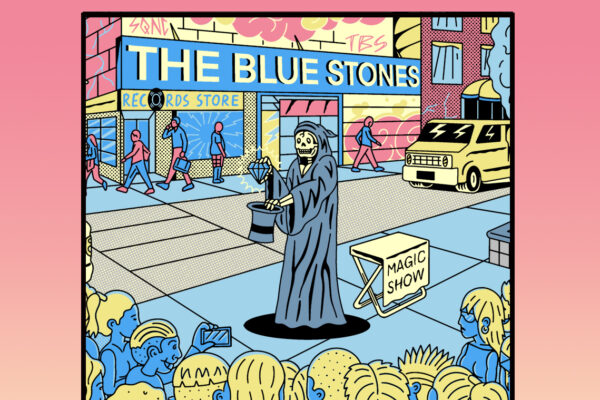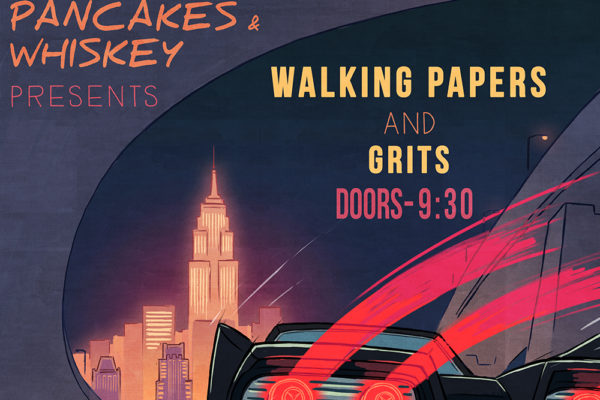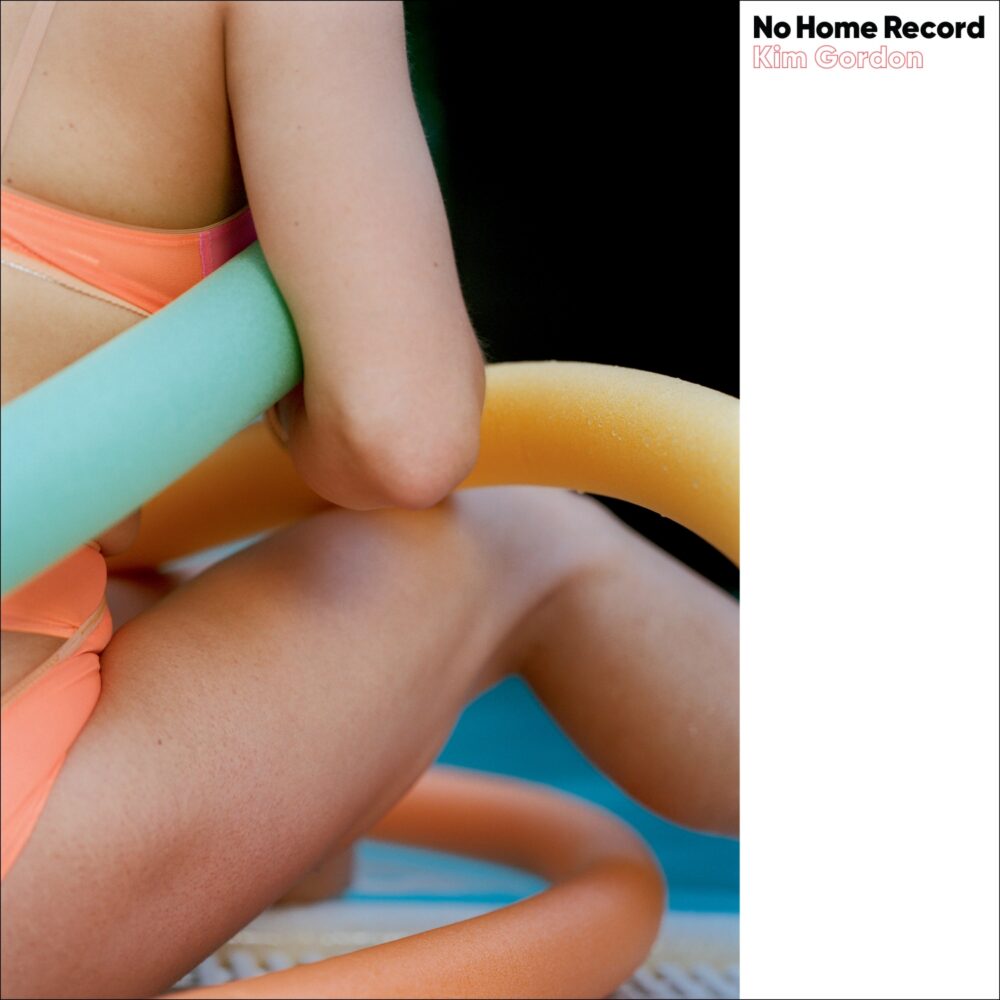If you already love Kim Gordon, you’ll love the wit and attitude pervading her debut solo album, No Home Record (out today – grab yours here). If you’re wondering what style and sound to expect from a solo Gordon, you’ll remain delightfully uncertain after hearing these nine eclectic tracks. The seasoned songstress flexes her creative muscles, the consistent threads being her sharp spoken word, distorted sounds, and minimalistic beats, everything else shifting wildly around them. The D.I.Y. vibe reflects Gordon’s original setup when she started playing music in the early eighties – a guitar, a drum machine, and lyrics lifted from magazine ads. Graceful and unapologetic, Gordon soars outside the confines of other projects with the dissolution of Sonic Youth far behind her.
Recorded at Sphere Ranch in Los Angeles, No Home Record was produced by Justin Raisen (Michael Stipe, Sunflower Bean), and features contributions from Shawn Everett (Jim James, The War on Drugs), as well as composer/filmmaker Jake Meginsky. Borrowing its name from Chantal Akerman’s final film, No Home Movie – a French-Belgian documentary about the life of Akerman’s mother – Gordon’s No Home Record explores a variety of current topics, sometimes subtly addressed, sometimes freakishly clear. “Why a solo record? And why now?” Gordon mused in the press release. “I don’t know, but it wouldn’t have happened without the persistence of Justin Raisen. Living in LA the last few years, it feels like home, but the transience of the place makes it feel sometimes like no home.”
The more traditional vocal moments that pop up in No Home Record are so strong, you might understandably wish they were more frequent. On the other hand, Gordon’s chanted/whispered, culturally-relevant prose is both soothing and disarming. Certain tracks feel like they belong with crucial scenes in a film soundtrack, like album opener “Sketch Artist,” the mod “Paprika Pony,” and the intense penultimate “Earthquake.” Several parts of No Home Record, like “Cookie Butter,” comment on today’s luxuries and desires (after all, cookie butter was only invented in the last decade) with acerbic observations. Likewise, in the thrashy and noisy “Air BnB,” Gordon opens by saying, “It’s a good life,” before easing into a cleverly uncomfortable take on modern comforts: “Slated walls, uh / 47-inch flat TV, yeah / Lounging, daybed / American idea, American idea / Copyright, copyright.”
“Murdered Out” – the 2016-released track that gave rise to the rest of No Home Record – is a repeat-worthy rager. It’s followed by another one, “Don’t Play It,” which comes with a slew of sludgy effects. “Hungry Baby” shares the same stick-in-your-head-ability – and better yet, Gordon leverages its rock licks to tackle abuse of power by certain males in the music industry: “Hungry baby, you’re out of time / Lay down your limbs, you’ll feel fine / I’m just a man with a grazing palm / Let’s make music all day long / But not today, some other time / Touch your nipple, pretend you’re mine.” Clearly, the “Hungry Baby” title applies to those lascivious men.
Straight through album closer “Get Yr Life Back,” she’s still poking fun at the meaningless habits of our era with abstract lines like “Shopping off a cliff / You’re a breath on my eye / To lose a compass of teeth / Hash away at twitter.” Gordon’s final lyrics on the album might be genuine advice – but it’s much more likely that they’re another jab at humanity’s band-aid solutions to bigger problems. “Every day, every day, every day / I feel bad for you / I feel bad for me / Get your life back, yoga,” she suggests, seemingly with a wink. Yoga can’t fix society, but music this percipient certainly has a shot.
Article: Olivia Isenhart












